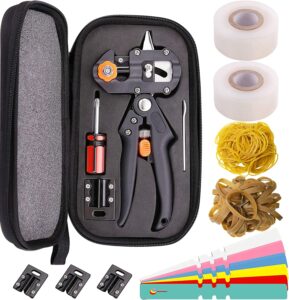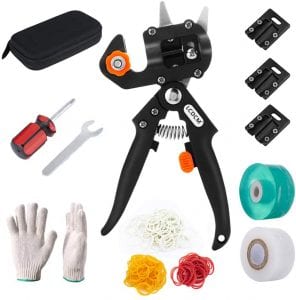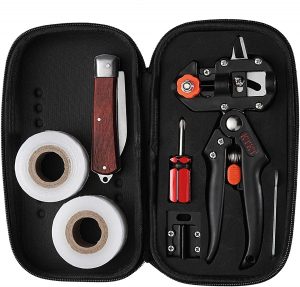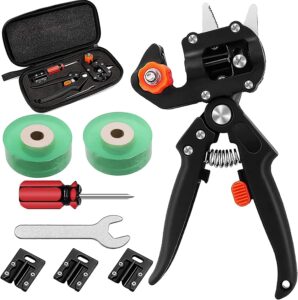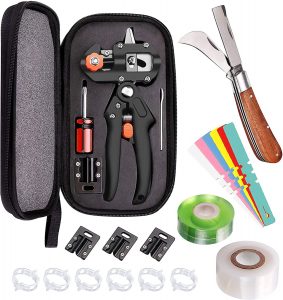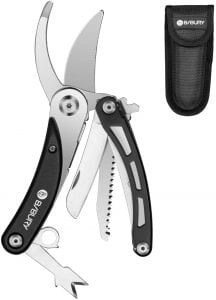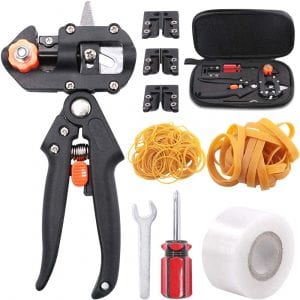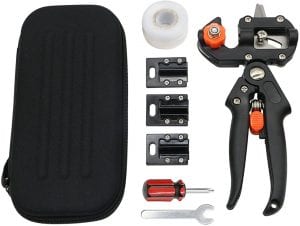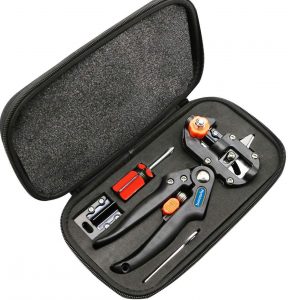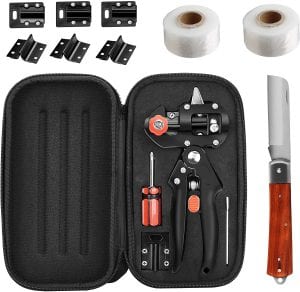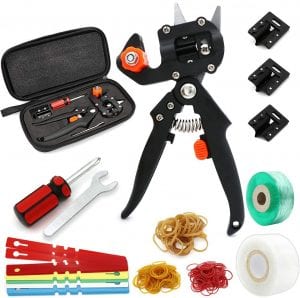The Best Garden Grafting Tool
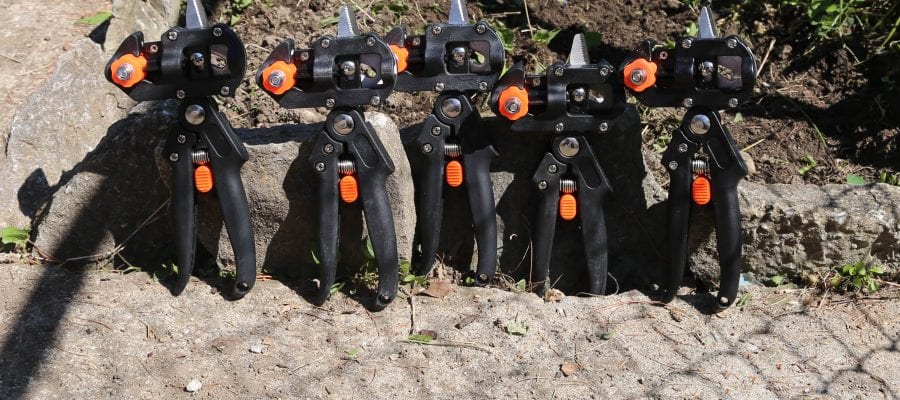
Our Review Process
Don't Waste Your Money is focused on helping you make the best purchasing decision. Our team of experts spends hundreds of hours analyzing, testing, and researching products so you don't have to. Learn more.
Our Picks For The Top Garden Grafting Tools
- 1. NAYE Stainless Steel Garden Grafting Pruner Tool Kit
- 2. LCDCM Professional Fruit Tree Garden Grafting Tool
- 3. KTKT Replaceable Blades V-Cut Garden Grafting Tool
- 4. PUELDU High Carbon Steel Professional Garden Grafting Tool
- 5. Lirches High Carbon Steel 2-In-1 Garden Grafting Tool
- 6. Bibury Ergonomic Gardening Hand Pruner Tool
- 7. Glarks Alloy Steel Garden Grafting Pruning Shears Tool
- 8. Stormshopping Easy Use Professional Garden Grafting Pruner Tool
- 9. Hymnorq Time-Saving Garden Grafting Pruner Tool
- 10. FUNTECK Razor Sharp 2-In-1 Grafting Tools Pruner Kit
- 11. ZALALOVA High Carbon Steel Garden Pruning Grafting Tools
The double edged blades on this garden grafting tool kit ensure a smooth cut. They are made of stainless steel to ensure consistent use under any conditions, and come with replacement blades as a backup. The ABS plastic handles are likewise durable.
Long-Lasting BladesThis garden grafting tool kit boasts a durable double blade.
This garden grafting tool has a high carbon blades on its cutting tool. This ensures longevity and smooth cuts on most orchard tree branches. The ABS plastic handle makes for easy operation.
Ideal for GardensThis tool makes grafting easy on most orchard trees.
This first thing you'll notice about this top-notch garden grafting tool is the non-slip grip handle. That makes the tool easy to use, whether you're pruning or grafting. Included with the tool are two rolls of grafting tape, a screwdriver, a pocket knife and a storage case.
Excellent GripThis garden grafting tool comes with three replaceable blades.
With this garden grafting tool, you'll receive a variety of accessories to aid you in creating a beautiful landscape. There are three extra blades, two rolls of grafting tape, a wrench and a screwdriver. All of the tools and accessories come neatly organized inside a handy storage case.
Economical PickYou won't have any trouble sticking to your budget, thanks to the affordable price tag on this garden grafting tool.
Buying Guide
For those who really love their plants, gardening can be a creative act. Sure, there are a lot of activities that certainly don’t feel that way. Simple, day-to-day caretaking chores like watering and even planting can seem like you’re just clearing a path for your greenery to do its own thing.
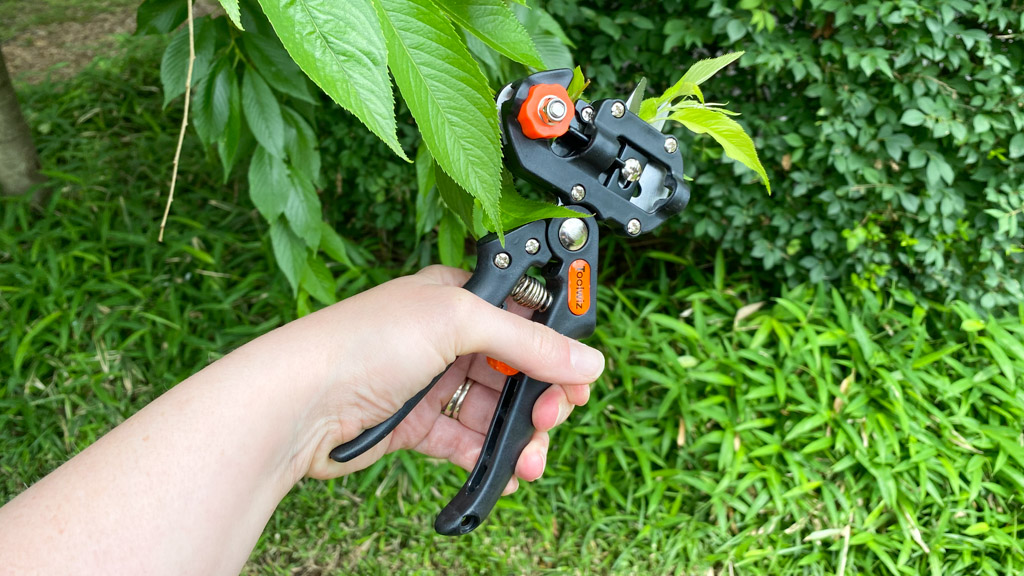
But then there’s the act of grafting, which really lets you take an active role in how your plants evolve. It can feel a bit like you’re Dr. Frankenstein, combining two plants into a whole that’s better than the sum of its parts, but there are few better ways to get your fruit trees and flowers to thrive in places where they’d otherwise wilt.
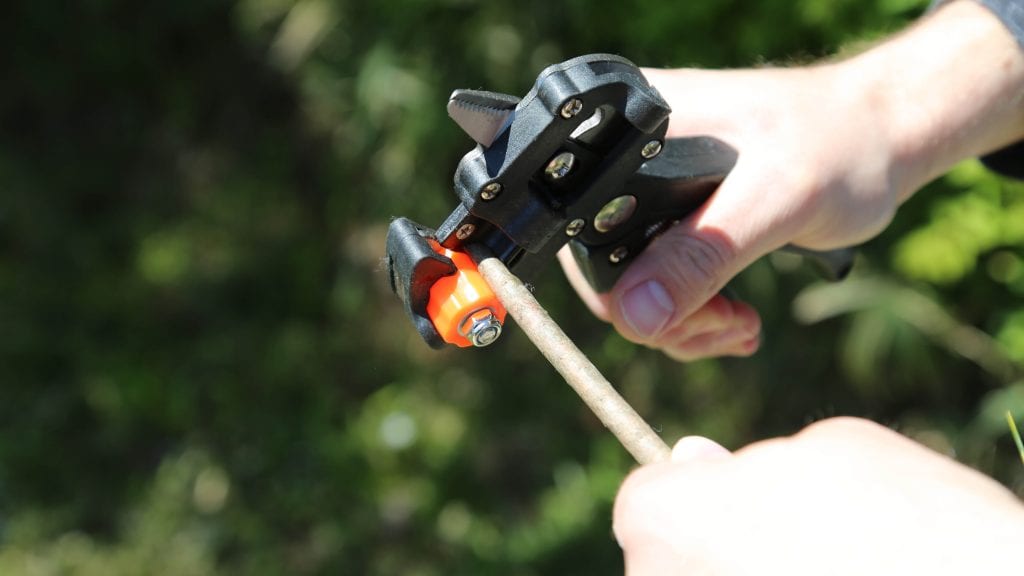
In a nutshell, the act of grafting joins two plants together into one. This is done by splicing the upper part of a tree or plant (known as the “scion”) onto the lower portion of another (the “rootstock,” or “stock”). This results in a plant that will (in most cases) grow the fruits and flowers of the scion portion while gaining the benefits of the rootstock, such as resistance to local pests or adaptability to certain weather conditions. This cannot be done with just any pair of plants, but combining the right two types of trees can result in a thriving, beautiful hybrid.
There are many different ways to graft, including a practice called budding. In budding, the entire top part of a plant is not removed to produce a rootstock. Instead, a small cut is made in the side of the plant, typically less than 4 inches above the root system. A small bud from the scion plant (rather than the entire top portion) is then inserted into the cut and secured there. This can be done anytime during the growing season, whereas full grafting can only be done while the plant is dormant.
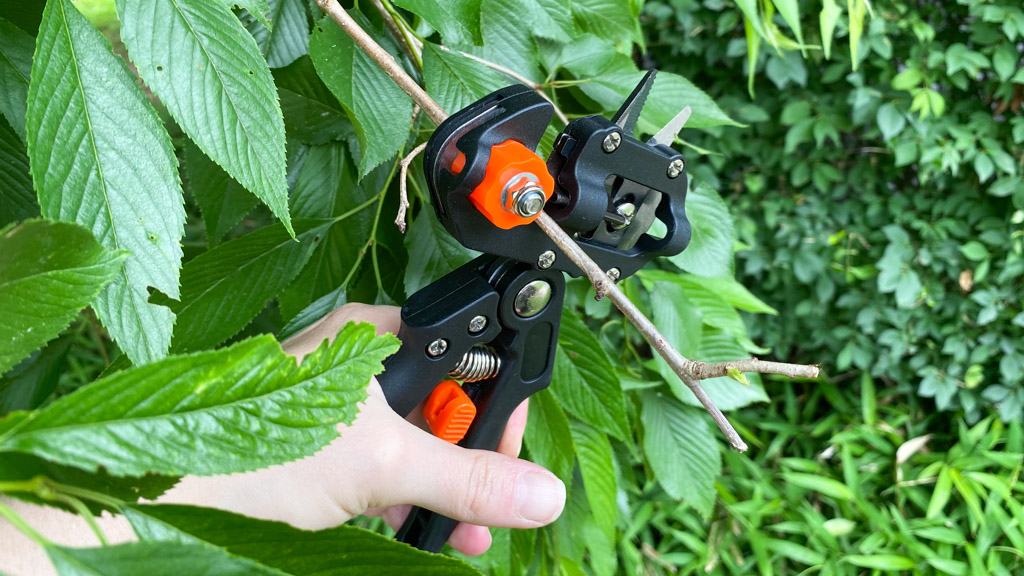
The process of grafting and budding is essentially plant surgery, and as such there are a lot of different cuts that need to be made in order to get your scion and rootstock to join just right. That’s where a good grafting tool comes in. A grafting tool might resemble a particularly complicated pair of pruning shears, and like pruning shears, the blades are made for cutting thick branches. But where shears only need to make a straight cut, a grafting tool can clip a branch so that the ends form convex or concave shapes. When properly applied, those cuts will allow a scion to fit onto the rootstock like a puzzle piece and take hold easier.
At a minimum, your grafting tool should be able to make a simple V-cut. Most grafting tools are more versatile than that, though. A superior one should come with replaceable blades that can cut in omega or U-formations better suited to certain grafting techniques. If you’re going to be doing any budding, look for a tool that can make a cut along the side of a branch. Budding takes a bit more skill than simple grafting, but a solid grafting tool can make it much easier.
Ideally, your tool should come with grafting tape and rubber bands to hold your new hybrid plant together, but these accessories won’t need to be specific to your gardening work as long as they’re waterproof. Just make sure that your grafting tool is weather-resistant, and make sure you clean it between cuttings. It’ll save you days worth of work over the years if you care for it properly.
What to Look For
- When it comes to grafting, timing is everything. Select a twig from the plant you have in mind for a scion during the dormant season. Make sure you get one that has new buds on it and refrigerate the twig in a plastic bag until the spring.
- Once the process of grafting a plant is done, that’s where your work really begins. After-care is essential while the scion binds to the rootstock, and that means making sure your seal stays airtight. Reapply wax around your tape as needed in three to five days after grafting. You’ll also want to aggressively prune away any new growth below the graft, which will ensure all the rootstock’s resources flow to the new scion.
More to Explore
The complexity of modern grafting cuts might make it seem like a relatively new practice in horticulture, but give those early gardeners credit. There’s no specific record of the discovery of grafting, but there are references to it in ancient Greek texts dating back to 300 BC or earlier.

